Disco will never be over. It will always live in our minds and hearts. Something like this that was this big, and this important, and this great, will never die. Oh for a few years, maybe for many years it will be considered passé and ridiculous. It will be misrepresented, caricatured and sneered at, or worse, completely ignored. People will laugh about John Travolta, Olivia Newton-John, white polyester suits and platform shoes... but we had nothing to do with those things and still loved disco...
Give me a cocktail and a Whit Stillman film, and I'm happy. Stillman's trilogy, Metropolitan (1990), Barcelona (1994) and The Last Days of Disco (1998) has become a near obsession. The Doomed Bourgeois in Love! I know Stillman's pithy scripts off by heart. Well, almost. They're as dry as a bone. Witty comedies of manners. Love and Friendship (2016), incidentally, was a hit with the critics; Stillman’s adaptation of Jane Austen's Lady Susan, and in a sense, an extension of his earlier work—for The Last Days of Disco is, well… it's Northanger Abbey meets Studio 54.
The Last Days of Disco is set in Manhattan in the 'very early 1980s', during one of New York's most interesting times— which we visited before: in Taxi Driver (1976), in Saturday Night Fever (1977), and The Eyes of Laura Mars (1978). Against the urban decay and degradation, Gotham City partied like there was no tomorrow. At Studio 54, Truman Capote, Debbie Harry, and Jean-Michel Basquiat boogied on down with the likes of Disco Sally and the Jaquelines Bisset and Kennedy Onassis. Following a stink over the alcohol licence, owners Steve Rubell and Ian Schrager sold the club in March 1980. This unhappy event coincided with the 'Disco Sucks' movement of the previous year. On the evening of Thursday, July 12th 1979, a crate filled with disco records was blown up on a baseball field at Comiskey Park, Chicago, home of the White Sox. 'Disco Demolition Night'— supposedly a promotion for Major League Baseball— ended in a pitch invasion followed by a riot. Thousands of baseball fans, whipped into a disco-hating frenzy by DJ Steve Dahl, ran onto the field, lighting fires and throwing disco records around like frisbees until dispersed by riot police: a redneck (and to some extent homophobic) revolt against the libertarian disco movement— condemned as elitist, urban and effete.
Anyway. If you’ve seen Metropolitan, and loved it, you’re in for a treat. Stillman creates a similar group of prep school and Ivy League educated twenty-somethings (familiar faces from Metropolitan appear in cameo roles), at large during their flat-sharing years— portrayed with all the angst and cattiness of their years, as they jostle for position, undermine and, or, get off with themselves and each other. Friendships, relationships and rivalries switch at the drop of hat. Alice (Chloe Sevigny) and Charlotte (Kate Beckinsale) work for a publishing house. Holly (Tara Subkoff), a flatmate in their grotty ‘railroad apartment’— well, I’m not sure what she does, but she’s seriously gorgeous. Tom (Robert Sean Leonard) is a burgeoning lawyer with an interest in ‘environmental issues’ and Scrooge McDuck comics. Josh (on medication) is an Assistant District Attorney, Jimmy Steinway (Mackenzie Austin) a failing advertising executive. And Des (played by the splendid Chris Eigeman) is a maverick Harvard-educated nightclub manager.
Looking ahead, some of these characters are going to do well in life, others are going to fall by the wayside: “there’s something deeply ingrained in human biology: women prefer bad over weak and indecisive and unemployed.” And as Charlotte says to Dan, yet another Harvard graduate at the publishing house: “What if in a few years we don't marry some corporate lawyer? What if we marry some meatball, like you? Or not you, personally, but someone with similarly low socio-economic prospects.”
Stillman nails it. I can remember my own insecure, post-University twenties, which, looking back at it, were pretty grim— certainly not the best years of my life, with a great dollop of bullshit, everybody scoring points off everybody else: an unsettled progress through a series of derelict and squalid flat shares, some better than others.
Night after night, the characters meet up at 'the club', a reincarnation of Studio 54: "Before disco this country was a dancing wasteland… You know the Woodstock generation of the 1960s that were so full of themselves and conceited? None of those people could dance." As with Metropolitan, Whit based the thing on his own experience: a time when corporate, buttoned-down Brooks Brothers types began to infiltrate Studio 54, using the club for career advancement. Disco, which had begun as an edgy, underground gay movement, had gone heterosexual mainstream. In the same way that London's Chelsea, once Bohemian, is now the haunt of bland European bankers and their brand-obsessed, trophy wives. Where the creatives lead, money follows. Last Days indeed. And, in a sense, it’s also the 'last free days of their relative freedom from the rules of the corporate world', as Roger Ebert so deftly puts it.
Kate Beckinsale’s Charlotte is also splendidly bitchy. Queen of the dance floor and queen of the passive aggressive put down:
Charlotte: I’m sorry, it’s just that you’re so terrific, it makes me sick to think you might get in that terrible situation again where everyone hated you.
Alice: Hated me?
Charlotte: You’re wonderful. Maybe in physical terms I’m a little cuter than you, but you should be much more popular than I am. It would be such a shame if what happened in college should repeat itself.
And Chris Eigeman's Des is Metropolitan's anti-hero, Nick Smith, reborn. The psychological self-analysis over Bloody Marys at P. J. Clarke's: "Do yuppies even exist? No one says, "I am a yuppie", it's always the other guy who's a yuppie. I think for a group to exist, somebody has to admit to be part of it." Well. Things are certainly not what they seem when the Scrooge McDuck collecting corporate lawyer, Tom, gives poor Alice gonorrhea and herpes.
Stillman’s not an especially visual director. Period detail is not his forte: the clothes and hairdos are more 90s than 1980 (glittery boob-tube and tight Lacoste polo shirt aside)— in the same way that Metropolitan is supposed to be set vaguely in the late 60s, yet in looks, reminds me of an upmarket Christmas Mail Order catalogue, circa 1989. The sound, too, is strangely muffled, although Kate Beckinsale’s American accent (at least to English ears) sounds impeccable. But hey! That’s to miss the point. It doesn’t matter. This is Stillman Land. Whit’s films are script led. Witty put-down follows witty put-down. His work is inherently charming, civilised and intelligent. If, like me, you prefer films where nothing much happens, apart from a group of good-looking people sitting around over cocktails, making urbane and amusing observations of life, then this one’s for you. It’s the antithesis of the curse of CGI, thrills and spills, rancid pop-corn, dumbed down scripts (I’m looking at you London’s Falling) and big-time surround sound. The Last Days of Disco (1998) is very much a WEEKEND FLICKS. film. It’s one of my all-time favourite movies. It’s cinema for grown ups.
I watched The Last Days of Disco (1998) on my own DVD, although I like the look of the Criterion DVD with the Pierre Le-Tan illustration on the front. Very New Yorker that. You can also download it via Amazon Prime Video. Incidentally, I couldn’t find the soundtrack (which includes Chic, Debbie Harry, Diana Ross, Sister Sledge and Evelyn ‘Champagne’ King) on Spotify, but I think it’s available on various other platforms.
You’ve just been reading a newsletter for both free and 'paid-for' subscribers. I hope you enjoyed it. Thank you to all those of you who have signed up so far.
There are two options for Luke Honey’s WEEKEND FLICKS. Cinema for Grown Ups: ‘Paid-for’ subscribers get an extra exclusive film recommendation every Friday morning, plus full access to the complete archive— which is currently on film no. 64, and should list over a hundred films by the end of the year. It costs £5 a month (or £50 a year)— a bargain, frankly, when you compare it to a few cups of coffee or a pint of beer in the pub. ‘Free’ subscribers get access to the Sunday newsletter, plus the ‘free subscriber’ films in the archive. Either option is a good bet. And when I get my act together, I’m planning to add a spoken voiceover (mine!) for paid subscribers.
In the meantime, have a relaxing and cinematic Sunday….




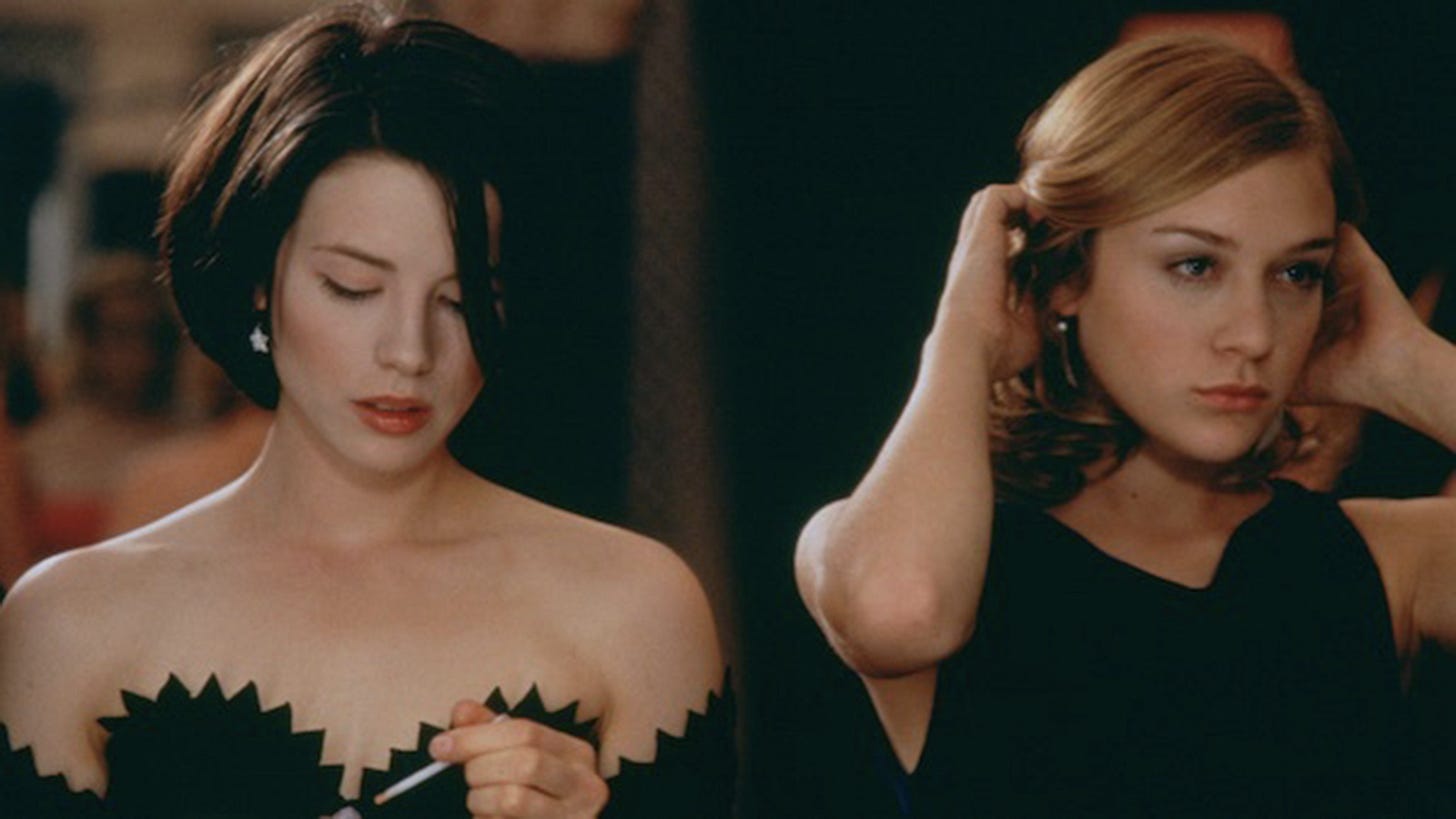
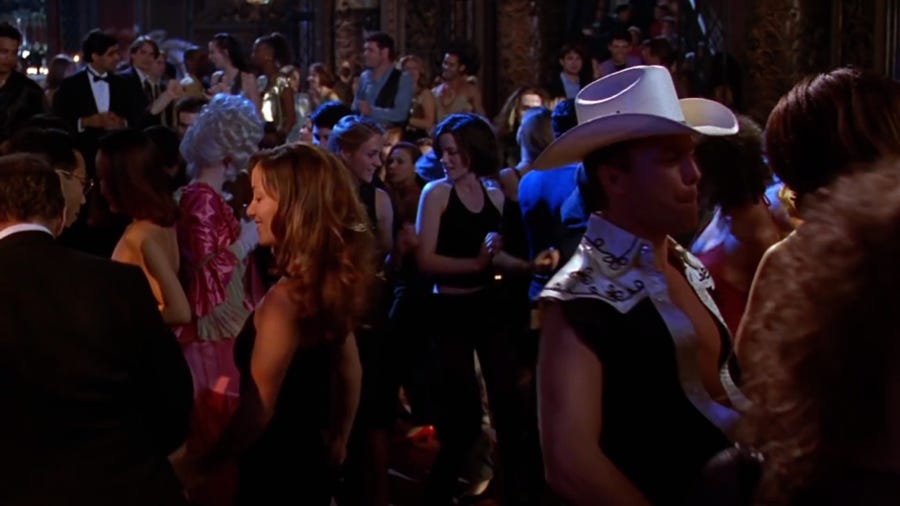

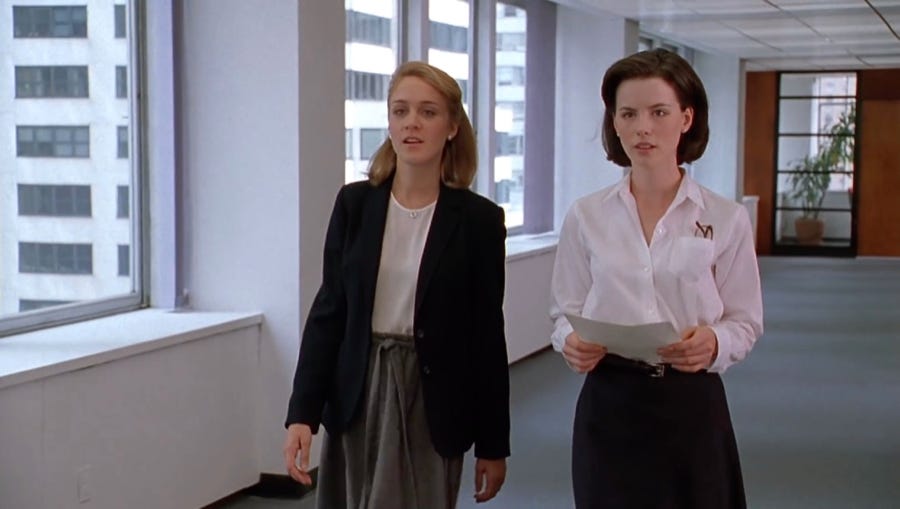
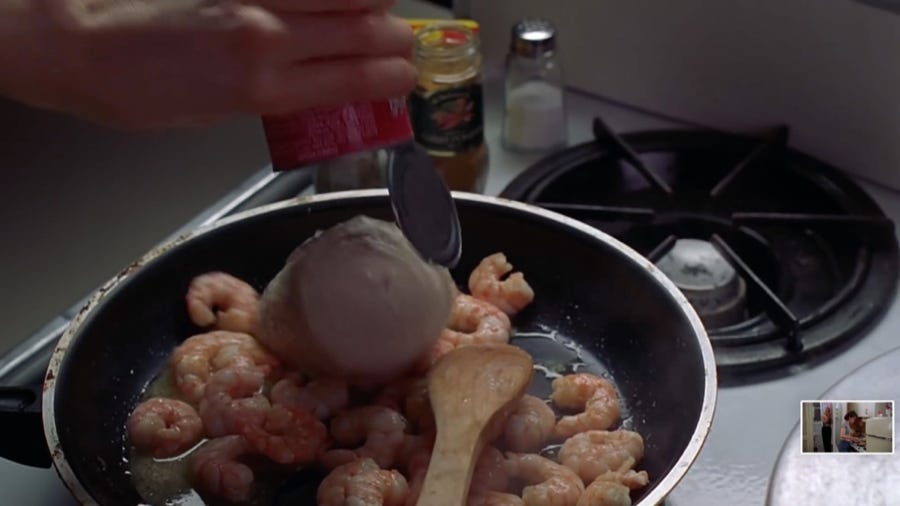
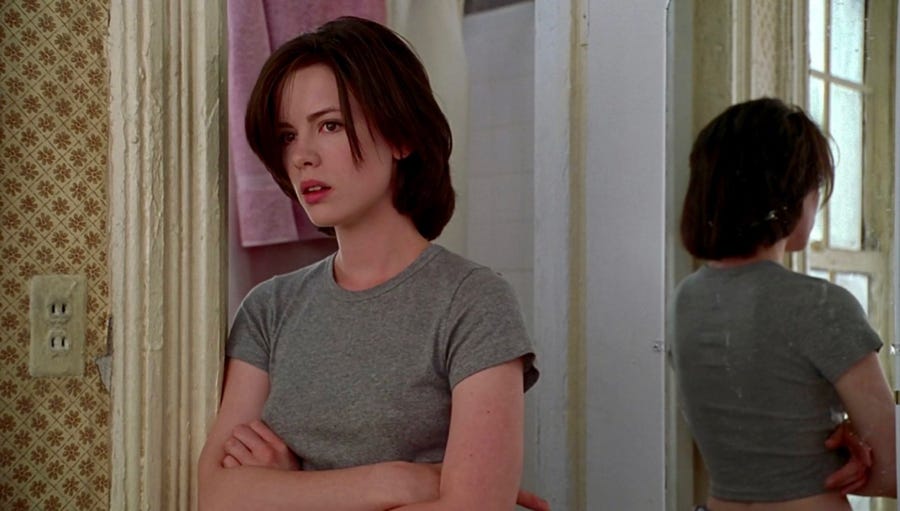
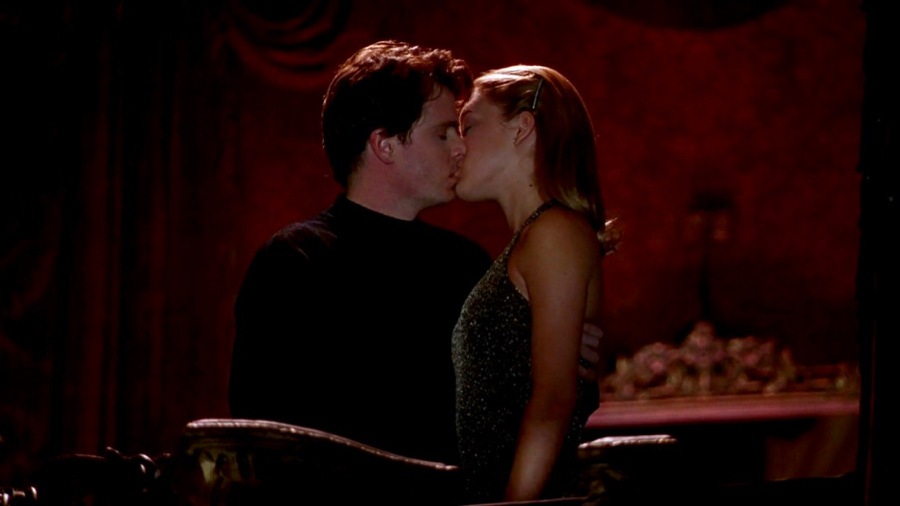

I have quoted and paraphrased one line from Barcelona over and over again: "Why do I always look better in mirrors than I do in photographs?" That line is a blood donor to a poem of mine:
In mirrors, I look
like myself.
In photos, I look
like my father.
Oh my god, I've probably seen Metropolitan three times and just assumed it was set in the late 80's.